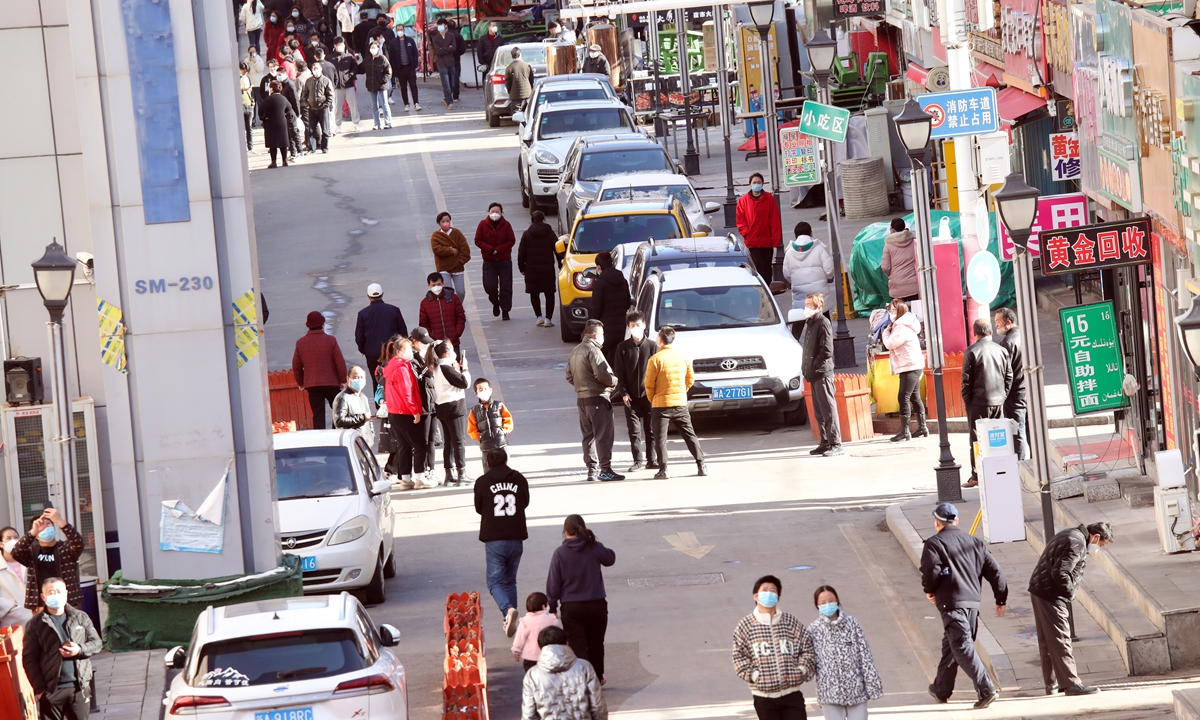
Some residents shop in Urumqi in Northwest China's Xinjiang Uygur Autonomous Region on November 26, 2022. Photo: IC
Urumqi in Northwest China's Xinjiang announced on Monday that the city has adjusted its policy away from an emergency setting toward regular epidemic prevention measures. Residents will no longer be required to present a negative nucleic acid or report their information before entering residential communities, public venues or when taking public transportation.
Urumqi has set up nucleic acid detection sites and mobile testing vehicles at traffic stations, large shopping malls, large residential communities and other high traffic commercial sites, to provide voluntary testing services to residents, Urumqi local authorities confirmed during a Monday press briefing, according to the Xinjiang Daily.
Citizens will no longer need to provide a nucleic acid report or complete real-name registration before purchasing antipyretic, cough medicine, antiviral and antibiotic drugs online or at a pharmacy, officials confirmed.
Aside from residents or workers considered high-risk and subject to closed-loop management, regular nucleic acid testing will not be carried out, officials stated.
.
The city announced on November 27 that it would gradually resume public transport and economic activity in low-risk areas, one day after the city declared that it had largely cleared COVID-19 cases at the community level and vowed to restore normal life in a phased manner.
Some cinemas in the city have started to reopen as of Monday, with some having made preparations to welcome patrons, the Urumqi Evening News reported on Monday. Two cinemas said they planned to show film Home Coming, according to the report.
Businesses including shopping markets and ski resorts in the city had also resumed operations, the report noted. The city's cultural center also opened.
Besides Urumqi, multiple Chinese cities including Beijing, Shanghai, Guangzhou, Chongqing and Chengdu have relaxed epidemic restrictions as the country continues to optimize its prevention policies.
